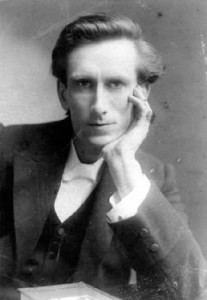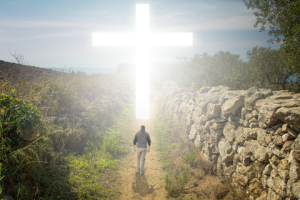Doing My Utmost for Surrender and Sanctification
A pastor of the church I attended preached a sermon many years ago on Romans 12:1-2 and he started off by asking a question: “Do you know what the problem with living sacrifices is?” He answered his question with: “They are always trying to crawl off the altar.” I don’t recall the sermon he preached, but I have always remembered the wisdom of these words; particularly as they apply to surrender in 12 Step recovery.
In a previous article in this series, “Surrender and Sanctification Along the Romans Road,” I reflected on how Romans 12:1 (I appeal to you therefore, brothers, by the mercies of God, to present your bodies as a living sacrifice, holy and acceptable to God, which is your spiritual worship) applied to recovery. Here we will pick up the discussion by continuing with Romans 12:2.
Do not be conformed to this world, but be transformed by the renewal of your mind, that by testing you may discern what is the will of God, what is good and acceptable and perfect.
What is this living sacrifice supposed to look like? What form does this spiritual worship, this devotion to God take? There are three things to see in how 12:2 responds to these questions. First, the command is set in the negative. Paul is realistic in recognizing the continued presence of sin in the life of believers. In his commentary on the book of Romans, John Murray said that eight of the Ten Commandments were negative because of sin; and that the first evidence of Christian faith is when we turn from sin. We might add that the living sacrifice of progressive sanctification is a persistent struggle against our sin nature, which repeatedly attempts to crawl off of the altar upon which it was sacrificed. “Sanctification is a process of revolutionary change in that which is the centre of consciousness . . . It is the thought of progression and strikes at the stagnation, complacency, pride of achievement so often characterizing Christians.”
The second thing is the term for ‘world’ here–aiōn, means a unit of time within a particular stage of history. In this sense, it should be understood as a contrast between the present age and the age to come. “This age,” its wisdom and its rulers, will pass away (1Co. 2:6). Its wisdom is foolishness before God (1Co. 1:20; 3:18-19). The age to come is the time of the resurrection at Christ’s return, when he will rule over all things; those who are raised in Christ will be equal to the angels and will never die (Matt. 12:32; Eph. 1:21; Luke 20:34-36).
Murray is helpful in his observation that this age is temporal and transient. “Conformity to this age is to be wrapped up in the things that are temporal, to have all our thought oriented to that which is seen and temporal.” The age to come is eternal. So, Paul gives us a warning here, do not be conformed to the things of this world.
Thirdly, there is a contrast between being conformed to this world/age and being transformed by the renewal of our mind. To fully appreciate what Paul is saying here, we need to look at some of his vocabulary in the original Greek. The term rendered ‘conformed’ is used only one other time in the NT (in 1 Peter. 1:14) and has the sense being conformed to a pattern or mold. The term ‘transformed’ means to metamorphose or change the essential nature of something. Again, the term for renewal is rarely used, found only one other time in the NT, in Titus 3:5.
Paul is attempting to communicate the radical change brought about by this living sacrifice. It is not a conformity or alignment with the Logos, the inherent Reason or “god” of the universe as with Stoic philosophy. We are not to accommodate the things of this world; not even the general revelation of God in creation (Romans 1:19). There is to be a metamorphosis of our essential nature into the image of Christ by the renewal of our minds; a transformation only possible through the action of the Holy Spirit (2 Corinthians 3:18).
The radical transformation required in the life of an addict or alcoholic is often one of the biggest stumbling blocks to their ability to establish and then maintain lifelong abstinence. The things of this ‘age’ include wine with dinner; beer and football games; parties and pot. Separation from the People Places and Things of this addictive age can mean losing a life-long friendship; never going to another rock concert; foregoing a raucous ‘pub crawl’ with friends to celebrate turning twenty-one. It can mean giving up a lucrative career as a nurse anesthetist because you have easy access to your drugs of choice. It can mean separation, and even divorce, from a life-long partner who refuses to give up their own drinking or drug use and follow you into an abstinent-based lifestyle.
It requires changes to the essential nature of how you live your life and look at the world around you.
In the exhortation to be transformed by the renewal of our mind, we see a further application of Romans 6:17, where Paul said that we were to become obedient from the heart to the standard of teaching to which we are committed. Faith without works is dead (James 2:26) was a favorite saying of Bill W. There is a necessary correspondence between what we do and what we believe. The faith we have in Christ is inexorably related to the metamorphosis of our will and lives into the will of God. The preceptive will of God for us, found in God’s law, should be progressively evident in our lives. This is also called progressive sanctification.
Inevitably in our lives, the question arises about which potential option before us is God’s will? Guidelines for many such decisions are clearly indicated in Scripture. Regardless of the allure of another person, do not commit adultery. Despite the enormity of the hurt done to us by another, do not murder. But many others are less readily discernible.
Do I marry this person or not? Do I accept this job or not? Do I comply with seemingly unethical directions from my boss? If God has a good, acceptable, perfect plan for my life, what is it here and now in this immediate situation? What do I decide? How do I respond? Am I reading the situation correctly?
Paul’s answer is to ‘test’ your choice. Make a decision and give it a trial run; formulate a hypothesis and see if your ‘experiment’ confirms or rejects the hypothesis. The testing process will determine if a certain decision is genuinely God’s will. We learn by experience what the will of God is; and in the process of testing, confirm the goodness and perfection of that will.
In the AA Grapevine article, “A Life Without Problems,” a man with twenty-three years of abstinence from alcohol remarked at a meeting that by turning his will and life over to the care of God, he had no problems that day. He readily admitted that hadn’t always been true, having “four marriages, three divorces, nine jobs, fourteen addresses (across four different states), dozens of home groups, and a countless number of meetings” in his twenty-three years since joining A.A. Even into double-digit years of sobriety he clung to his problems, making them his identity. He resisted anyone who might offer a solution and fought “to stay in my comfortable zone of unhappy competence that I had established with my problems.”
After the meeting, he was asked how he did it. The answer he gave was that the Third Step swept them away. “I turned my will and my life over to the care of God, as I understand him (or don’t understand him, her, it or them). Now I have only one task, laid out in AA’s Eleventh Step: ‘praying only for knowledge of His will for us and the power to carry that out.’” Even if there was only “the Random God of the Cosmic Dice Game,” that “god” would get better results than what he had achieved through self-will.
Quoting the closing words to Bill Wilson’s Step Three essay in Twelve Steps and Twelve Traditions, he said that to turn your will and life over to the care of God, “we can pause, ask for quiet, and in the stillness simply say [the Serenity Prayer], ‘God grant me the serenity to accept the things I cannot change, courage to change the things I can, and wisdom to know the difference.’” In this moment, regardless of what happened before or what may happen tomorrow, what is the very best thing you can possibly do right now? Either do God’s will forcefully or be willing to be proved wrong–even if it means experiencing temporarily painful consequences. “Do what you think is God’s will at each particular moment, and you will have no problems. At least, that’s the best I can explain it today.”
Although you don’t see this mentioned in A.A. approved literature, AAs and its founders read the Oswald Chambers devotional My Utmost for His Highest in the early pre-Big Book years. Early Akron A.A. meetings opened with prayer and a reading from the Bible or a devotional such as My Utmost for His Highest. Dr. Bob, his wife Anne, Bill W. and his wife Lois used it. Chambers regularly returned to the topic of surrender and being a living sacrifice in his devotional comments. Here are a few selections.
It is of no value to God to give Him your life for death. He wants you to be a “living sacrifice,” to let Him have all your powers that have been saved and sanctified through Jesus. This is the thing that is acceptable to God. (January 8th)
The natural must be turned into the spiritual by sacrifice, otherwise a tremendous divorce will be produced in the natural life . . . The only way we can offer a spiritual sacrifice to God is by presenting our bodies a living sacrifice. (December 10th)
Surrender is not the surrender of the external life, but of the Will; when that is done, all is done. There are very few crises in life; the great crisis is the surrender of the will. God never crushes a man’s will into surrender, He never beseeches him, He waits until the man yields up his will to Him. That battle never needs to be re-fought. (September 13th)
Notice the parallel themes to the following exhortation by Bill W. in his final words to chapter eleven of the Big Book, “A Vision for You”: “Abandon yourself to God as You understand God. Admit your faults to Him and to your fellows. Clear away the wreckage of your past. Give freely of what you find and join us.”
If you’re interested, more articles from this series can be found under the link for “The Romans Road of Recovery.” “A Common Spiritual Path” (01) and “The Romans Road of Recovery” (02) will introduce this series of articles. If you began by reading one that came from the middle or the end of the series, try reading them before reading others. Follow the numerical listing of the articles (i.e., 01, 02, or 1st, 2nd, etc.), if you want to read them in the order they were originally intended. This article is the 15th in the series. Enjoy.









